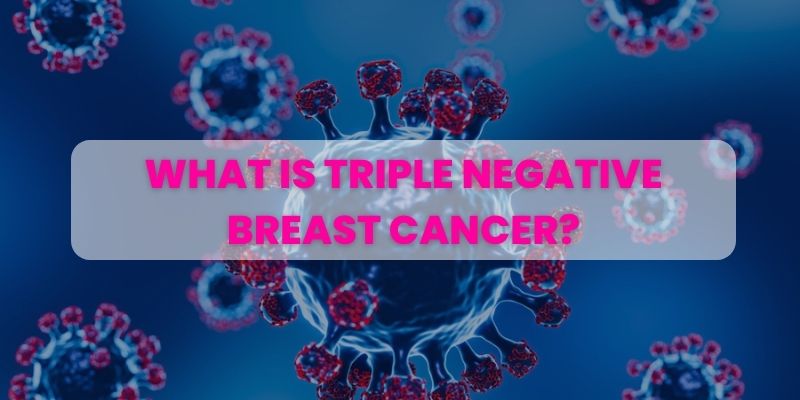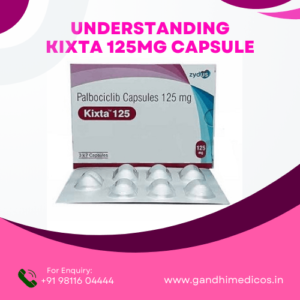Know More About Triple Negative Breast Cancer?

Table of Contents
Understanding Triple Negative Breast Cancer
Breast cancer stands as one of the most widespread cancer types impacting women globally. Among its variations, Triple Negative Breast Cancer (TNBC) stands out as a particularly aggressive and challenging subtype. This article aims to delve into the intricacies of TNBC, shedding light on its unique characteristics, treatment options, and ongoing research developments.
What Is Triple Negative Breast Cancer?
TNBC is a subtype of breast cancer characterized by the absence of three specific receptors commonly found in other breast cancer types: estrogen receptors (ER), progesterone receptors (PR), and human epidermal growth factor receptor 2 (HER2). This absence of these receptors renders TNBC unresponsive to conventional hormonal therapies and targeted treatments designed for other breast cancer types.
Understanding the Significance of Receptor Absence
The absence of these receptors in TNBC poses significant challenges in treatment. ER and PR receptors, when present, enable targeted therapies to inhibit their action, effectively slowing cancer growth. Meanwhile, HER2-positive breast cancers can be targeted with drugs that specifically block the HER2 protein.
Factors of Triple Negative Breast Cancer
While research continues to explore the exact causes of TNBC, certain risk factors have been identified. These may include BRCA1 gene mutations, younger age at diagnosis, African-American ethnicity, and family history of breast cancer.
Diagnosis and Staging
Diagnosing TNBC involves standard procedures such as mammograms, ultrasounds, MRIs, and biopsies. The staging of TNBC determines the extent of the cancer and guides treatment decisions.
Treatment Approaches
Surgery:
Surgery remains a primary treatment option for TNBC. Lumpectomy or mastectomy may be recommended depending on the stage and extent of cancer.
Chemotherapy:
Given the lack of targeted therapies, chemotherapy plays a pivotal role in treating TNBC. It aims to destroy cancer cells through medications that inhibit their growth and spread.
Immunotherapy:
Recent advancements have explored the potential of immunotherapy in treating TNBC. This approach harnesses the body’s immune system to target and attack cancer cells.
Ongoing Research and Clinical Trials:
The landscape of TNBC treatment is continuously evolving with ongoing research and clinical trials. Scientists and healthcare professionals are exploring novel therapies and treatment combinations to improve outcomes for TNBC patients.
Coping Strategies and Support
Coping with a TNBC diagnosis involves emotional and psychological challenges. Seeking support from support groups, counseling services, and healthcare providers can significantly aid in navigating this journey.
Medicines for Breast Cancer Treatment
Kixta 125mg Capsule:
Kixta 125mg Capsule is a groundbreaking treatment for a specific type of breast cancer. It’s designed to tackle estrogen receptor-positive, human epidermal growth factor receptor 2-negative breast cancer that has spread.
This medication teams up with other treatments by targeting pathways crucial for cancer cell growth. It stops cyclin-dependent kinase 4 and 6, which are vital for the progress of cancer cells relying on estrogen. By doing this, it slows down their growth and stops them from spreading further.
Usually taken orally at 125mg, it’s important to take this medicine with fo od as directed by your healthcare provider. Following the prescribed schedule is key for it to work effectively.
od as directed by your healthcare provider. Following the prescribed schedule is key for it to work effectively.
Kixta 125mg Capsule marks a significant step forward in treating this specific type of breast cancer. It offers hope for patients, potentially improving their chances of survival and quality of life.
Like many medications, Kixta 125mg Capsule might cause side effects. These can range from mild to severe and include things like fatigue, hair loss, rash, stomach issues, and decreased blood cell counts. Mouth inflammation is also a possible side effect.
The primary goal of Kixta 125mg Capsule is to treat estrogen receptor-positive, human epidermal growth factor receptor 2-negative breast cancer that has spread. It often works together with other treatments to manage symptoms and slow down the cancer’s growth.
Know more: Kixta 125mg Capsule
Conclusion
Triple Negative Breast Cancer remains a complex and aggressive subtype of breast cancer. Its unique characteristics necessitate specialized treatment approaches, often relying on conventional chemotherapy due to the absence of targeted receptors. Ongoing research and clinical trials offer hope for advancements in TNBC treatment, providing optimism for improved outcomes in the future.


 Anti Cancer Drugs
Anti Cancer Drugs Hepatitis C
Hepatitis C Meds for HIV
Meds for HIV Ayurvedic Medicine
Ayurvedic Medicine Transplant Medicine
Transplant Medicine Respiratory System
Respiratory System +91-9999064250 / 9811604424 / 9811604444
+91-9999064250 / 9811604424 / 9811604444
 8(800)100-47-90
8(800)100-47-90
